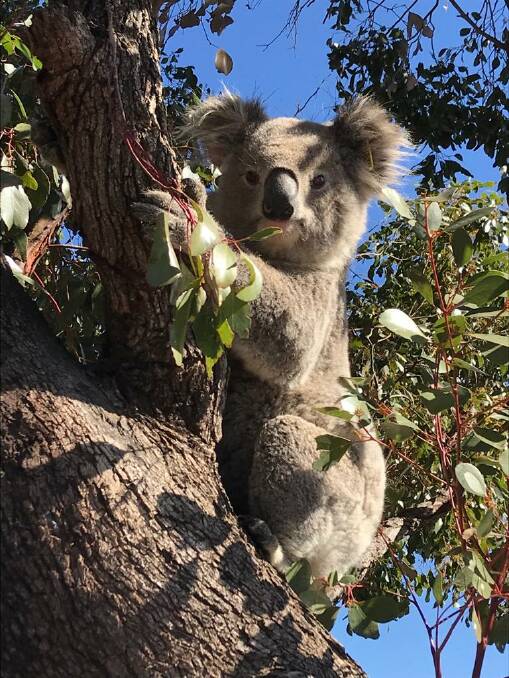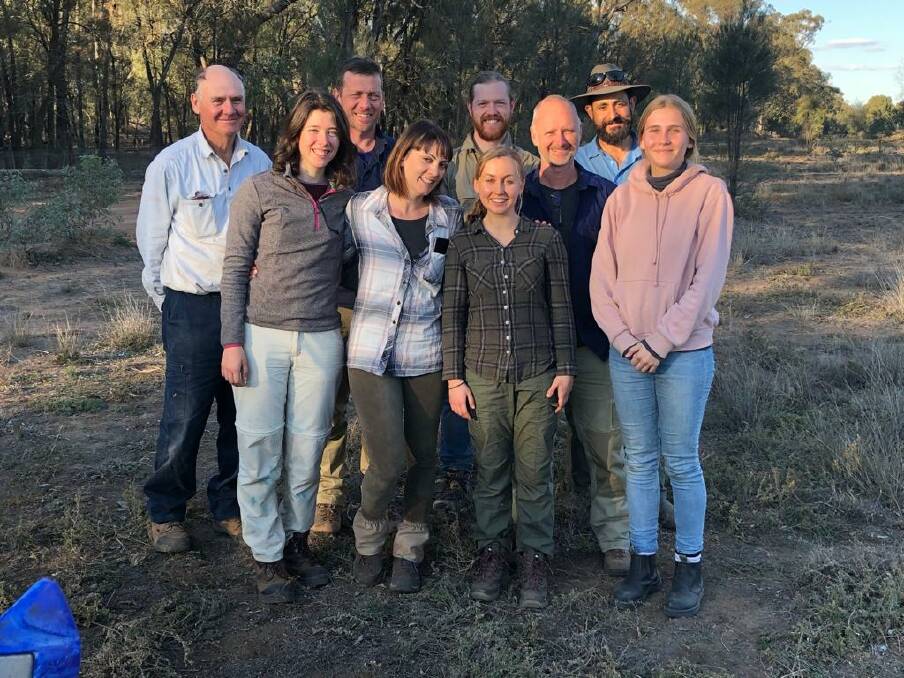
There may be hope on the horizon for Gunnedah's koalas in the form of a chlamydia vaccine.
Subscribe now for unlimited access.
or signup to continue reading
As the population struggles against the rising tide of the debilitating disease, two universities are teaming up to trial a new vaccine in Gunnedah in a bid to save the much-loved marsupial.
The work of the University of Sunshine Coast's Professor Peter Timms and his team will be put to the test next year with the help of the University of Sydney, which has been conducting research in the area for a number of years.
Read also:
The Sydney team was in Gunnedah just last week to capture koalas and gather preliminary data on their health and disease status to inform the new project.
The team is headed up by zoologist Dr Valentina Mella, who said chlamydia was a "huge problem".
"With the incidences of 65 per cent of the disease, you can imagine eventually they're all going to have it, so the good thing about vaccination is that it doesn't just prevent the disease; there is also some hope it will cure it or at least make better the koalas that have some of the symptoms," she said.
"We're very hopeful. We don't know if it will work. It is a trial so there are a lot of ifs and question marks, but we're very happy we got this funding because we can at least give it a go."
About 60 animals will be included in the trial and the vaccine will be administered to sick and well koalas to both combat and prevent the disease. The vaccinated animals will then be monitored over a three-year period.
I'm not 100 per cent sure it's going to be our saviour but, boy, it's a huge leap forward in trying to manage the disease.
- Professor Mark Krockernberger, University of Sydney
Veterinary pathologist Professor Mark Krockenberger said the vaccine would be "customised to the strains of chlamydia we find in this region" and was "potentially a game-changer".
"[Professor Tims] has shown that it can be effective in inducing an immunisation response from a koala and, in very controlled conditions, is able to reduce the shedding of the organism by the koala," he said.
"That's really important because the disease is spread by sexual intercourse and, if the koala is shedding lots of the organism in its female reproductive tract, then obviously they'll easily infect the male. If the shedding is reduced, the contagiousness is reduced.
"We're not sure exactly how long the vaccination will last, so the plan is we're going to vaccinate early next year. We're going to follow these animals through a three-year period and measure the immune response to the vaccination, and also measure whether they contract chlamydia or continue to shed chlamydiosis.
"We're essentially trying to work out whether this is going to be an effective management tool or not."

Professor Krockenberger said when he first came to Gunnedah in 2008, only one or two koalas they tested had the disease, "but now it's everywhere".
"This trip we've again noticed there are a few less koalas than last time we were around [in January]. We've definitely noticed a decline in the last three to four years. In some of our field sites they've been in reasonably good condition despite drought; and on other sites they're in poor condition," he said.
"The reproductive success in the area is very low because chlamydia causes infertility. All of the animals are getting older, they're not breeding and the population is declining."
Professor Krockenberger said the vaccine was "the most promising" one developed and he was "cautiously optimistic" it would have a positive impact.
"I am pretty excited about the prospect of this. I'm not 100 per cent sure it's going to be our saviour but, boy, it's a huge leap forward in trying to manage the disease," he said.
"There's a bit of light on the horizon if it works."
Prof. Tims will visit the Sydney team later this month to "nail down some of the logistics for the project".

